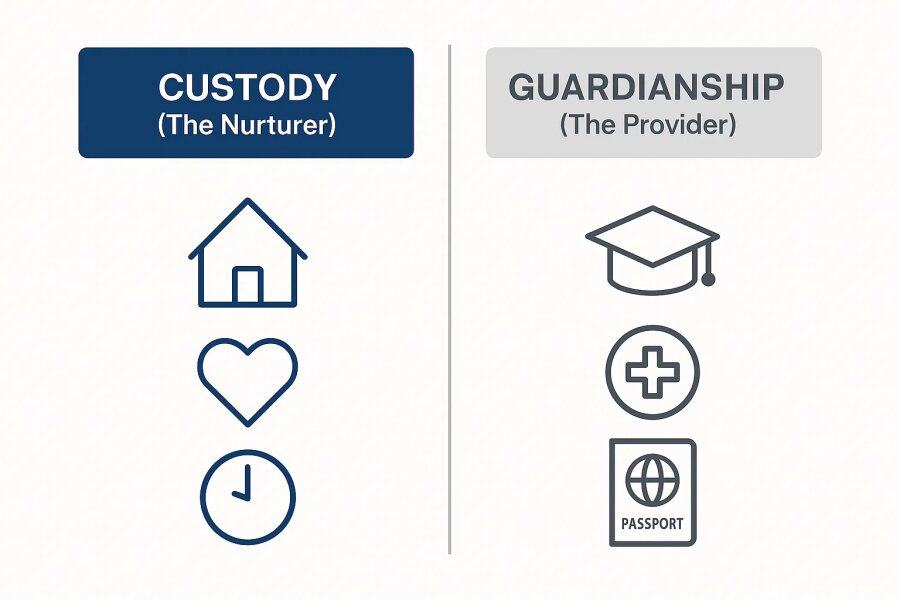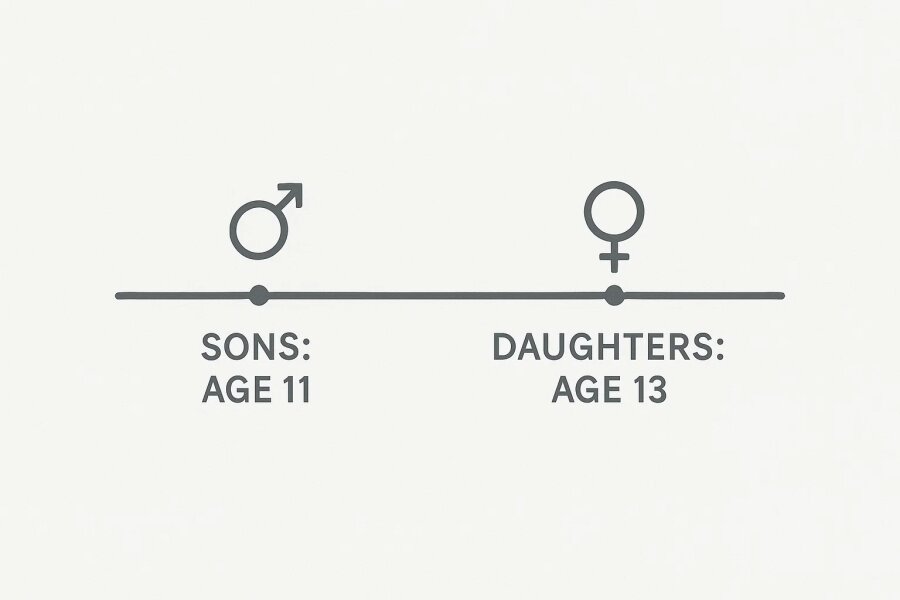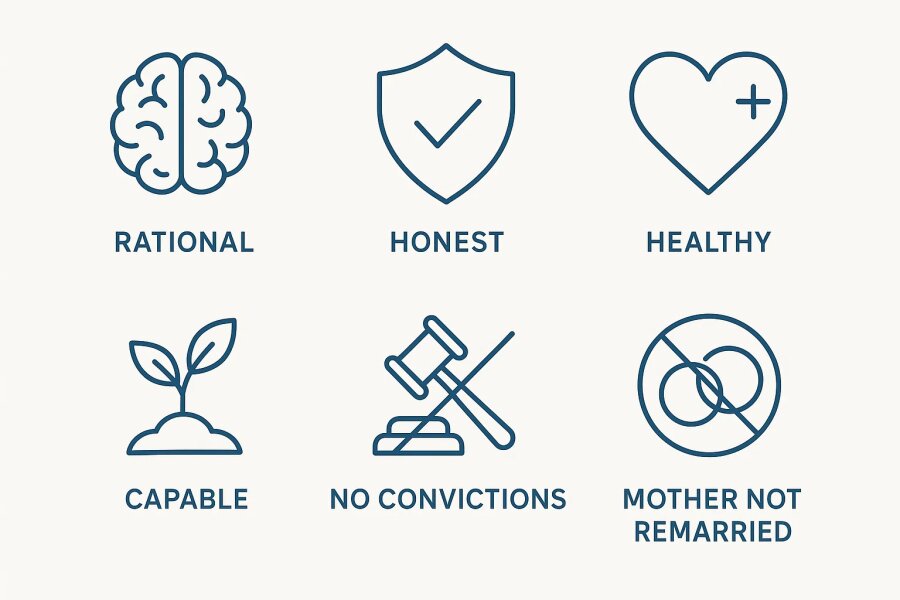Table of Contents
Introduction: Navigating Custody as an Expat
Understanding Custody and Guardianship in the UAE
The Role of the Family Court in Dubai
Key Legal Rules and Requirements
- Custody Age Limits
- Custodian Eligibility Requirements
How Custody Works for Expatriates in Dubai
Exploring Custody Arrangements
- Joint Custody in the UAE
- Guardianship Explained
The Guiding Principle: Best Interests of the Child
Practical Considerations for Expat Parents
Common Questions About Child Custody in Dubai
Why Legal Support Matters
Conclusion: Putting Children First
Divorce is never easy, and it may be even harder for expats in Dubai. A lot of parents who are going through a divorce in Dubai are most worried about what will happen to their children. Family conflicts frequently center on issues like custody, guardianship, and parental duties. If you want to preserve your rights and make sure your children's best interests are taken care of, you need to know how child custody laws operate in the UAE, particularly for expats.
In this article we talk about how child custody is determined in Dubai, what expat parents need to know, and when they may need to get legal help.

Custody and Guardianship in the UAE
Child custody in the UAE is not a single concept. Instead, the law separates custody and guardianship, with each role carrying distinct responsibilities.
- Custody refers to the day-to-day care of the child, including living arrangements, supervision, and emotional nurturing. This is often given to the mother, especially when children are younger.
- Guardianship refers to legal authority and financial responsibilities, including providing shelter, education, medical care, and general welfare. This usually belongs to the father.
According to Federal Law No. 28 of 2005 on Personal Affairs, the biological mother is typically considered the custodian, while the father is the guardian. This arrangement reflects the cultural and legal framework of the UAE. Courts will intervene when disputes arise, always prioritising the child’s best interests.

The Role of the Family Court in Dubai
The family court in Dubai oversees custody disputes. Judges follow the principles set out in Federal Law No. 28 of 2005 but also have wide discretion. Their overriding concern is ensuring that the child is raised in a safe, stable, and supportive environment.
Parents going through an expat divorce in Dubai must file their case with the local family court. Proceedings begin with a mediation attempt, and if no agreement is reached, the court examines the case. Judges may review:
- Each parent’s ability to care for the child
- The child’s age, health, and emotional needs
- Living conditions provided by each parent
- Any history of misconduct, neglect, or criminal convictions
If a parent wishes to contest custody, they must provide evidence showing why it would serve the child’s best interests to alter the typical arrangement.

Custody Age Limits in the UAE
Under Article 156 of Federal Law No. 28 of 2005, custody by the mother ends when:
- A son reaches the age of 11
- A daughter reaches the age of 13

At that point, the father, as guardian, can request custody. However, mothers may seek for an extension if it helps the child. For example, if a boy is still finishing his studies or a girl has not yet married, the mother may claim that ongoing custody promotes the child’s welfare.
Courts may also look into the father’s plea if he considers a son requires stronger parental influence for responsibility and discipline. In any situation, judges evaluate all arguments carefully.
Custodian Eligibility Requirements
To be granted custody, a parent must meet specific legal requirements. Under Articles 143 and 144 of Federal Law No. 28 of 2005, the custodian must be:
- Rational and mature
- Honest and trustworthy
- Healthy and free of infectious diseases
- Capable of raising the child properly
- Not convicted of crimes of “honour”

In addition, there are conditions based on whether the custodian is the mother or the father:
- If the custodian is the mother:
- She must not remarry, unless the court finds it is in the child’s best interest.
- She must share the same religion as the child.
- If the custodian is the father:
- He must have a suitable woman, such as a female relative, in the home to help care for the child.
- He must also share the same religion as the child.
If either parent fails to meet these conditions, the court may transfer custody to the other parent or even to another relative.
How Custody Works for Expatriates in Dubai
For expatriates, the regulations might be more complicated. Courts in Dubai primarily apply UAE law to custody disputes, regardless of nationality. However, foreign parents may seek the use of their home country’s legislation provided they can establish it is in the child’s best interests and does not contravene public policy in the UAE. Judges make the ultimate judgment.
Some crucial things for expat parents to remember:
- Even if both parents are expatriates, the UAE family court in Dubai retains jurisdiction.
- Parents cannot automatically assume their home country’s custody laws will apply.
- Joint custody in the UAE is not the default. Courts may award shared arrangements, but usually one parent has custody while the other has visitation rights.
- Moving children out of the UAE without court approval can be considered child abduction.
Because of these complexities, expat divorce in Dubai often requires specialised legal guidance. You can find experienced family lawyers in the UAE through Lawzana to help navigate these issues.
Joint Custody in the UAE
Although not as prevalent as in certain Western nations, shared custody in the UAE is feasible. Courts may give joint custody when both parents display cooperation, maturity, and the capacity to work together for the child’s welfare. Judges will only allow such agreements if they are persuaded the child’s wellbeing would be safe and steady.
In many circumstances, shared custody is arranged around alternate responsibilities. For instance, one parent may be responsible for daily care while the other parent gets prolonged visits, or both parents may share decision-making power while the child remains mainly with one parent.
Guardianship in the UAE Explained
Guardianship in the UAE is often misunderstood by expatriates. Even when the mother has custody, the father usually remains the guardian. This means he is responsible for financial support, including:
- Housing
- Schooling
- Medical expenses
- Food and clothing
The guardian also has legal authority over decisions such as passports, travel permissions, and educational enrolment. For expatriate mothers, this can be challenging, as travel with children often requires the father’s written consent.
In exceptional cases, guardianship can be transferred to the mother or another relative, but such situations require strong evidence and judicial approval.
Best Interests of the Child
The central principle guiding custody decisions in Dubai is the best interests of the child. Courts may depart from the standard rules if circumstances demand it. For example:
- If the mother is found unfit or unable to care for the child, custody may shift to the father.
- If the father is unable to provide a safe environment, the mother may retain custody beyond the usual age limits.
- If both parents are deemed unfit, custody can be granted to another family member.
This flexible approach ensures that each case is judged on its unique facts.
Practical Considerations for Expat Parents
Parents going through an expat divorce in Dubai should be aware of several practical challenges:
- Residency visas – A child’s visa is typically sponsored by the father, which can create difficulties if custody is disputed.
- Relocation – Moving abroad with the child requires court approval. Without it, a parent risks serious legal consequences.
- Visitation rights – Non-custodial parents are usually granted visitation, but the court defines how often and under what conditions.
- Enforcement – Court orders must be respected. Attempting to bypass custody rulings can lead to penalties or criminal charges.
Because these issues can significantly impact family life, many expatriates turn to qualified family lawyers in Dubai to protect their rights.
Common Questions About Child Custody in Dubai
Can expatriates apply their home country’s law?
Yes, but only if the court agrees that it does not conflict with UAE public policy.
What happens if the mother remarries?
In many cases, remarriage can end her custodial rights unless the court rules otherwise.
Can fathers gain custody before the child reaches 11 or 13?
Yes, if they can prove the mother is unfit or unable to meet the child’s needs.
Is joint custody common in the UAE?
It is becoming more recognised, but it is not the default arrangement.
Why Legal Support Matters
Child custody disputes in Dubai can be emotionally and legally complex. For expatriates, added layers of cultural differences, residency concerns, and conflicting home country expectations make matters even more complicated. Having professional legal support is not just advisable; it is often essential.
Lawzana helps connect parents with experienced family lawyers in the UAE who understand both local and international aspects of custody law. Whether you need to defend your custodial rights, apply for guardianship changes, or negotiate visitation terms, expert guidance ensures your case is presented effectively in family court.
Putting Children First
Divorce can reshape families, but custody arrangements in Dubai are designed to protect children’s wellbeing. By understanding how child custody laws in the UAE work and recognising the distinct roles of custody and guardianship, expatriate parents can prepare themselves for what lies ahead.
The family court in Dubai looks beyond parental disagreements, always asking what serves the child’s best interests. For expatriates navigating this sensitive process, knowing your rights, seeking clarity, and engaging reliable legal support can make a significant difference.
If you are an expatriate facing divorce and custody questions in Dubai, consider reaching out to qualified family lawyers in the UAE through Lawzana. Professional advice will help you make informed choices and ensure your child’s future remains secure.



